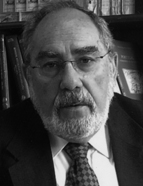

At FEUC, after the turbulence of the years of the Revolution, the teaching of Economic History was strengthened in the 1976-77 academic year with the inclusion of the subject of Portuguese Economic History in the curriculum of the Degree in Economics (Jaime Ferreira, Nos 30 anos da FEUC..., 2003, pp. 102-134). Its first lecturer was the medievalist A. H. de Oliveira Marques, one of Portugal’s leading historians, who had long been convinced of the importance of economic and social history for the education of students. The initiative to create the course belonged to Joaquim Romero Magalhães, who, however, left to join the Constituent Assembly and took up the post of Secretary of State for Educational Guidance in two governments headed by Mário Soares (1976-1978).
Despite these developments, the decisive affirmation of economic history in Portugal came after the Revolution of 25 April 1974. The creation of the Revista de História Económica e Social in 1978 and the birth of the Associação Portuguesa de História Económica e Social [Portuguese Association of Economic and Social History] in 1980, both on the initiative of Vitorino Magalhães Godinho, supported by a group of young teachers including Romero Magalhães, were decisive advances that contributed greatly to the renewal of Portuguese historiography.
Even as a young man, and right from his aforementioned degree thesis, Romero Magalhães already combined historical erudition with an almost literary narrative style and a biting irony. He understood history as a craft of writing focused on the explanation and causal logic of phenomena, but without resorting to theoretical embellishments detached from time and space. He always understood that research into documents and other historical sources requires historians to develop an archival ethic and to use these traces of the past from a dual perspective: as a probative instrument and as an exercise in plausible narrative imagination. First came the publication of sources, then study, analysis and written synthesis.
This work is financed by national funds through FCT - Foundation for Science and Technology, I.P, in the scope of the projects UIDB/04311/2020 and UIDP/04311/2020.
